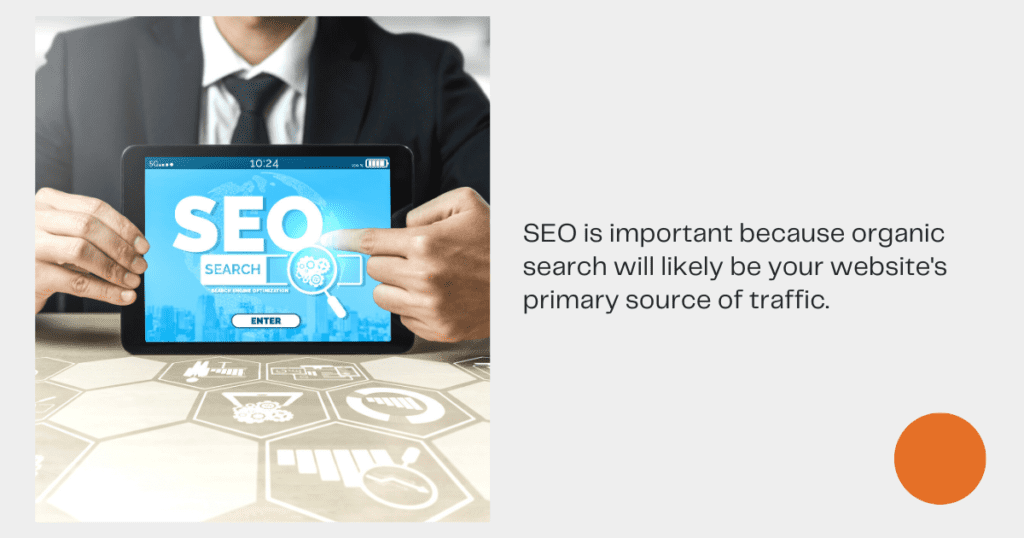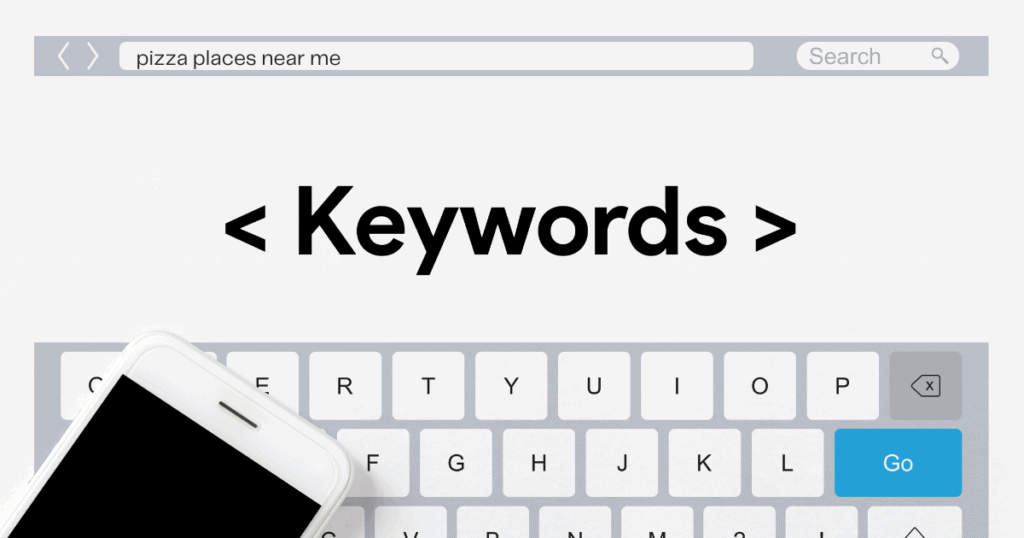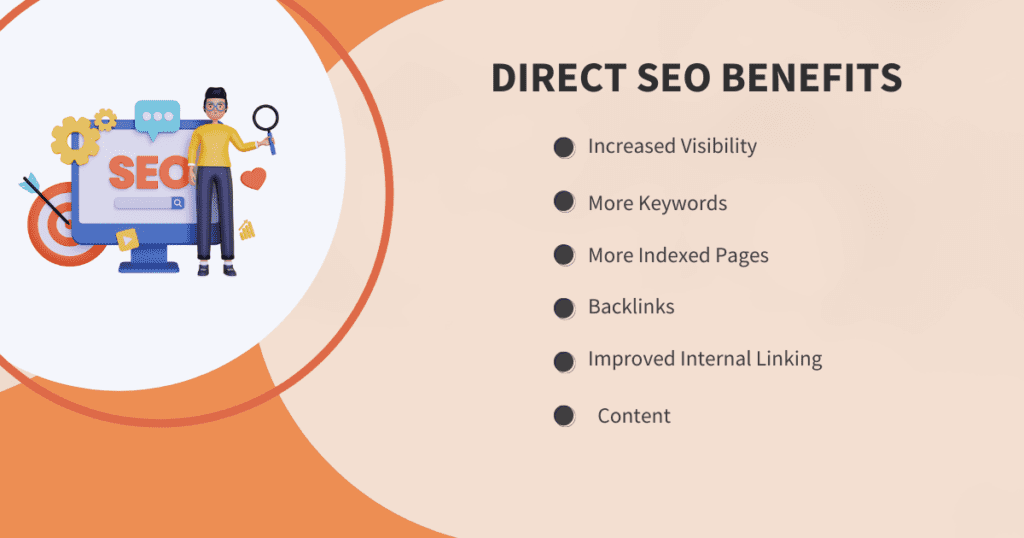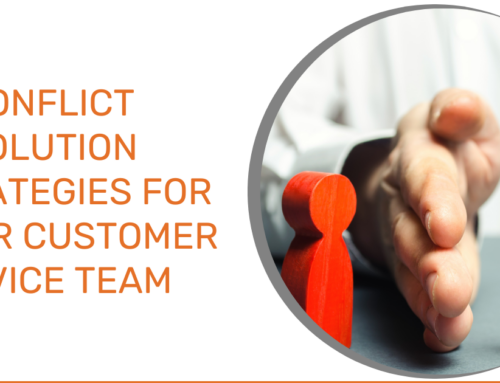We are currently in the middle of a series for pizzeria owners about building an online presence. So far, we have discussed website design tips for your pizza business website and growing your social media presence. Today we will explore arguably the most difficult topic in this series – SEO or search engine optimization.
You’ve probably heard of the buzzword SEO. You might even know that it stands for search engine optimization. But, as a pizzeria owner, you likely have questions like what is SEO and why you should care. This SEO 101 article will cover the basics to get you up to speed fast! We’ll also share many suggestions of practical things you can do that will make a big impact. Let’s dive in!
What Is SEO?

SEO stands for search engine optimization, and it refers to strategies that will increase the visibility of your web pages in search results. In other words, by following some best practices, your website can appear on the first page (or even among the first couple of search results) when a person searches your business name or related keywords, like ‘pizza places near me.’
Chances are you have some experience searching on sites like Google, Bing, or Yahoo. You type in what you want to know in the search box, and then you get a list of pages that the search engine believes will have the information you are looking for.
What’s happening in the background is that the search engine uses bots to ‘crawl’ pages on the web. The bots collect information about the pages, put them in an index, and then use algorithms to analyze them. The algorithms consider hundreds of factors to determine how pages should appear in the search results. Search engines aim to present searchers with the very best information that answers their search query.
So in that sense, SEO refers to the strategies you can do to ‘speak the bot’s language’ – that is, to make it clear to search engines what your pages are about so they know when to include your pages in relevant search results.
SEO is important because organic search will likely be your website’s primary traffic source. If your website appears further down in search results (or on the second, third, or tenth page), people won’t see it and won’t click over to view your site. By appearing higher in search, not only will you get more traffic, but you’ll also gain trust and credibility. For local businesses like pizzerias, having a dominant position in local search can also translate to more sales and customers.
5 Practical SEO Tips for Pizzeria Owners
There’s no need to sugarcoat it – the technical aspects of SEO can be quite complicated. This article will cover some of the basic things you can do on your own. This will give you a better understanding of how SEO works from a practical sense and get you started on boosting your SEO rankings. For additional SEO help, we recommend reaching out to an expert. You can find skilled freelancers on platforms like Upwork, Freelancer, Guru, and Fiverr who can help you with your SEO questions and needs.
1. Focus on Local First

According to the experts at Semrush, “If you serve a specific geographic area, local SEO is super important (perhaps even more important than “regular” SEO).” That’s why we recommend that pizzeria owners begin their SEO endeavors with a focus on local SEO.
With local SEO, Google uses the searcher’s location to present information about local businesses related to their search query. For example, if you type in “pizza places near me,” you will get what is known as “the map pack” or “the local pack.” Google features three local businesses in the search results and a map showing their location. The person searching can also click on the “More places” button to see additional listings, but your goal is to be listed among the top 3 in the map pack.
Thankfully, BacklinkO has written the definitive guide to help business owners with local SEO. Here are the basics, and we encourage you to check out the article for more details.
- Claim your Google Business profile
- Make sure your location and contact information is correct
- Encourage reviews and respond to each one that comes in
- Add local keywords to your website (like *city* pizza, pizza in *city*)
- If you operate in more than one location, add pages to your website for each location
- Ensure that your name, address, and phone number are consistent across all pages, online directories, etc., across the web, so Google doesn’t get conflicting information
2. Research and Select Keywords

After focusing on local SEO (or in conjunction with it), you can begin researching and selecting keywords for each page on your website. A keyword is a word or phrase that explains what the content on that page is about. The best keywords are those words or phrases that people use when they are searching for that topic.
Each page on your website is unique, so each should focus on its keyword. For example, your home page may focus on your main local keywords, such as “*city* pizza” or “pizza in *city*.” Meanwhile, you might use ‘pizza menu’ as a keyword for your menu page, ‘pizza delivery’ as a keyword for your order page, ‘pizza specials’ as a keyword for your deals and coupons page, and so on.
You can use various tools to research popular keywords, including Semrush, Ahrefs, and Google Search Console. After selecting your keyword, you’ll want to use it several times on the given page. We’ll talk more about that in #4 below.
3. Start a Blog

In addition to looking at your current website pages, many business owners also start a blog for search engine optimization purposes. Some of the direct SEO benefits include the following:
- Increased Visibility: You can appear in more search results when you have more content.
- More Keywords: Blogging allows you to target additional keywords beyond those you use for your main website pages.
- More Indexed Pages: Having more pages can be used by search engines to measure how reliable and trustworthy the overall site is.
- Backlinks: Backlinks are when another person links to your webpage on their site; blogs increase opportunities for that to happen.
- Improved Internal Linking: Internal linking is the practice of linking to other website pages on your site, essentially helping Google understand how they all fit together.
- Content: Google loves up-to-date and useful content, so blogging will help you generate it. Plus, you can use this content on your social media pages, email newsletters, and more.
4. Use Keywords Strategically
Keywords are used for your main website pages and your blog posts, and there are some best practices for where you should include them to get the best SEO benefits:
- In the title and subheadings
- Within the first couple sentences of the content
- Spread periodically throughout the content (but not overused)
- In the URL
- In metadata (SEO title and description)
Regarding that last point, you can get an SEO plugin to set meta titles and descriptions without any coding required. Doing so will help optimize your pages and posts for search engines, so you can appear higher in search and boost organic traffic. Check out this article for a list of the best SEO plugins.
5. Consider Social SEO Too

According to Semrush, social media does not directly contribute to SEO rankings but does help indirectly. On top of that, social media sites are themselves ‘search engines.’ Search Engine Journal recently wrote an article pondering the question, “Is Social Media Search the New Google?” SEO works similarly on social media sites, so if you have a social presence, you should certainly consider social SEO.
- Use keywords in your bio and business description
- Don’t leave any fields in your profile blank
- Use popular hashtags that are relevant to your business
- Use keywords in your posts
- Create compelling content that will get likes, comments, and shares
Getting Started with SEO
‘What is SEO?’ is a complex question, but in this article, we provided a simple answer and several practical ways to jump in. If you’re interested in learning more, there is plenty of information online – or you could hire a contractor to do the work! The most important thing we hope you take from this article is that SEO is critical to building your online presence and cannot be neglected.
Next, we will tackle a lighter (albeit still complex) topic – list building and email marketing. See you then!



